In the PYP, science is viewed as the exploration of the biological, chemical and physical aspects of the natural world, and the relationships between them. Our understanding of science is constantly changing and evolving.
The inclusion of science within the PYP leads learners to an appreciation and awareness of the world as it is viewed from a scientific perspective. It encourages curiosity and ingenuity and enables the student to develop an understanding of the world.
Reflection on scientific knowledge also helps students to develop a sense of responsibility regarding the impact of their actions on themselves, others and their world.
Inquiry is central to scientific investigation and understanding. Students actively construct and challenge their understanding of the world around them by combining scientific knowledge with reasoning and thinking skills. Scientific knowledge is made relevant through its innumerable applications in the real world. The science process, by encouraging hands-on experience and inquiry, enables the individual to make informed and responsible decisions, not only in science but also in other areas of life.
During their six years at CWBS, students will study science through the following strands:
Living things
The study of the characteristics, systems and behaviours of humans and other animals, and of plants; the interactions and relationships between and among them, and with their environment.
Earth and space
The study of planet Earth and its position in the universe, particularly itsrelationship with the sun; the natural phenomena and systems that shape the planet and the distinctive features that identify it; the infinite and finite resources of the planet.
Materials and matter
The study of the properties, behaviours and uses of materials, both natural and human-made; the origins of human-made materials and how they are manipulated to suit a purpose.
Forces and energy
The study of energy, its origins, storage and transfer, and the work it can do; the study of forces; the application of scientific understanding through inventions and machines.
The science component of the curriculum also provides opportunities for students to:
- observe carefully in order to gather data
- use a variety of instruments and tools to measure data accurately
- use scientific vocabulary to explain their observations and experiences
- identify or generate a question or problem to be explored
- plan and carry out systematic investigations, manipulating variables as necessary
- make and test predictions
- interpret and evaluate data gathered in order to draw conclusions
- consider scientific models and applications of these models (including their limitations).
Taken from: Making the PYP happen: A curriculum framework for international primary education
Please click HERE to view the ESF Science Skills Continuum.
In the PYP, social studies is viewed as the study of people in relation to their past, their present and their future, their environment and their society. Social studies encourages curiosity and develops an understanding of a rapidly changing world. Through social studies, students develop an understanding of their personal and cultural identities. They develop the skills and knowledge needed to participate actively in their classroom, their school, their community and the world: to understand themselves in relation to their communities. The aim of social studies within the PYP is to promote intercultural understanding and respect for individuals and their values and traditions.
In support of the IB mission statement, the social studies component of the PYP curriculum will encourage students to “understand that other people, with their differences, can also be right”. Therefore, there is a strong emphasis on the reduction of prejudice and discrimination within the classroom, the school, the community and the world.
The IB learner profile is integral to teaching and learning social studies in the PYP because it represents the qualities of effective learners and internationally minded students. The learner profile, together with the five essential elements of the programme—knowledge, concepts, skills, attitudes and action—informs planning, teaching and assessing in social studies.
Social studies learning guides students towards a deeper understanding of themselves and others, and of their place in an increasingly global society. It provides opportunities for students to look at and think about human behaviour and activity realistically, objectively, and with sensitivity. Exposure to and experience with social studies therefore opens doors to key questions about life and learning. Evidence of student learning will be apparent in their willingness and ability to take action in order to make a difference in the world.
Please click on the following link to view the ESF Social Studies Skills Continuum.
What do we want students to know?
Human systems and economic activities
The study of how and why people construct organizations and systems; the ways in which people connect locally and globally; the distribution of power and authority.
Social organization and culture
The study of people, communities, cultures and societies; the ways in which individuals, groups and societies interact with each other.
Continuity and change through time
The study of the relationships between people and events through time; the past, its influences on the present and its implications for the future; people who have shaped the future through their actions.
Human and natural environments
The study of the distinctive features that give a place its identity; how people adapt to and alter their environment; how people experience and represent place; the impact of natural disasters on people and the built environment.
Resources and the environment
The interaction between people and the environment; the study of how humans allocate and manage resources; the positive and negative effects of this management; the impact of scientific and technological developments on the environment.

